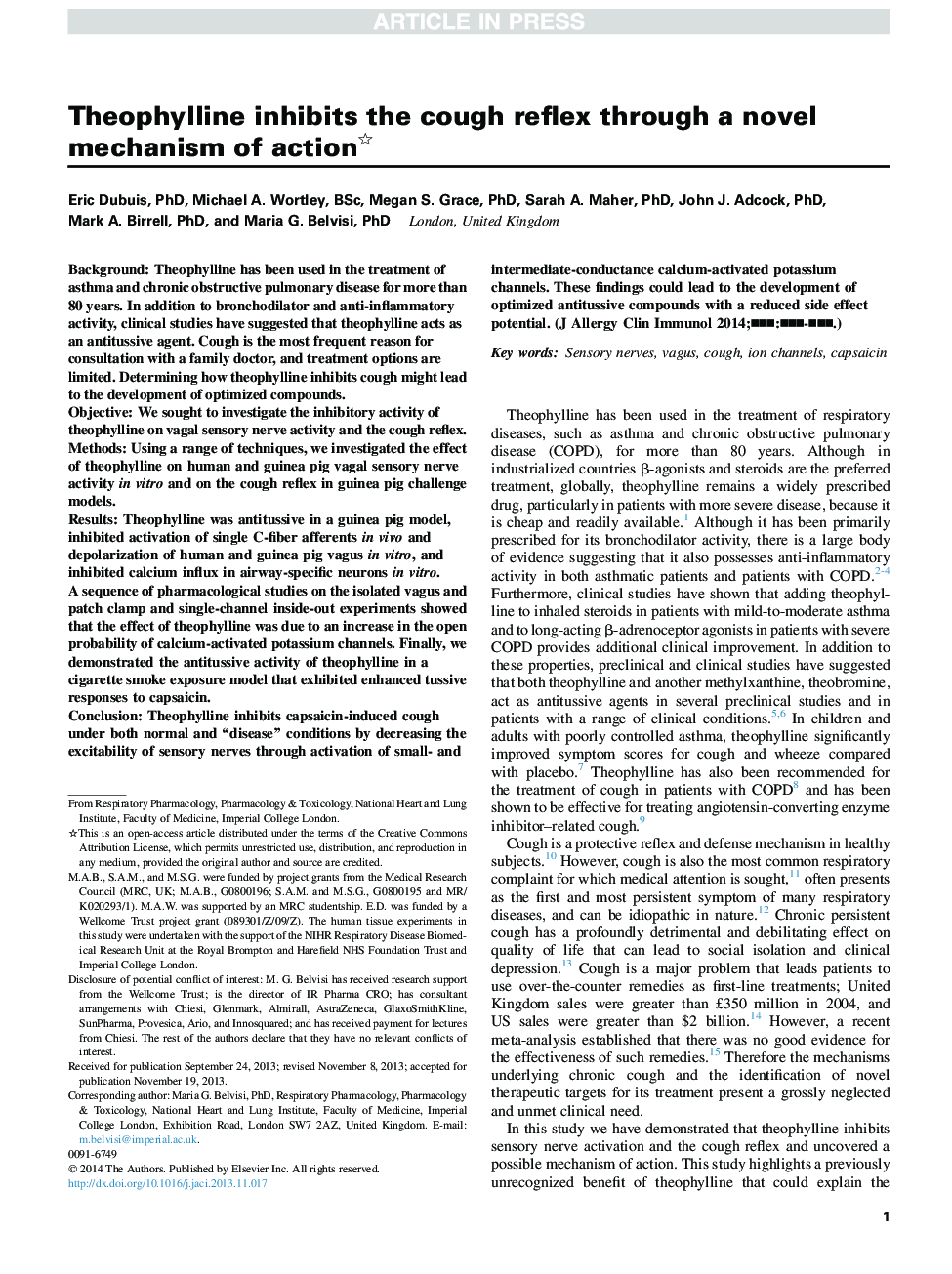| Article ID | Journal | Published Year | Pages | File Type |
|---|---|---|---|---|
| 6066349 | Journal of Allergy and Clinical Immunology | 2014 | 11 Pages |
Abstract
Theophylline inhibits capsaicin-induced cough under both normal and “disease” conditions by decreasing the excitability of sensory nerves through activation of small- and intermediate-conductance calcium-activated potassium channels. These findings could lead to the development of optimized antitussive compounds with a reduced side effect potential.
Keywords
IK channelTrpPDEPGE2DiIECs[Ca2+]iSensory nervesCOPDChronic obstructive pulmonary diseaseextracellular solutionCoughPhosphodiesteraseVagustransient receptor potentialProstaglandin E2BKCa channelSK channelIon channelsLarge-conductance calcium-activated potassium channelSmall-conductance calcium-activated potassium channelIntracellular calciumCapsaicin
Related Topics
Life Sciences
Immunology and Microbiology
Immunology
Authors
Eric PhD, Michael A. BSc, Megan S. PhD, Sarah A. PhD, John J. PhD, Mark A. PhD, Maria G. PhD,
